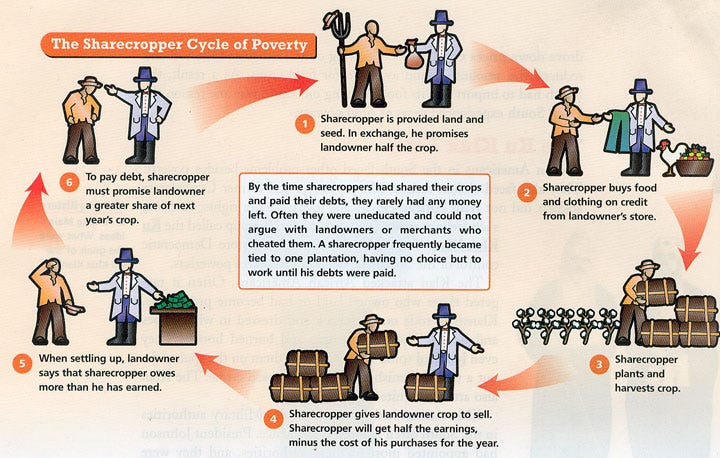Is the Ethanol Industry a Modern-Day Sharecropper System?
Through mandates, subsidies, land use regulations and other policies, the free market has been severely restricted for farmers, placing more power in the hands of government and corporations.
Op/Ed by Chuck Carbondale
The ethanol industry, once heralded as a renewable energy solution and economic driver for rural America, has evolved into a system that eerily resembles sharecropping—where farmers are locked into a cycle of dependency, limited autonomy, and corporate-government control.
Through mandates, subsidies, land use regulations, environmental restrictions, and other policies, the free market has been severely restricted for farmers, placing more power in the hands of government agencies and large agribusiness corporations.
This thought exercise explores how these factors have created a modern version of sharecropping, where farmers bear the risks while larger entities reap the financial rewards.
Ethanol Mandates: Government-Controlled Demand
One of the most significant ways the ethanol industry exerts control over farmers is through government-imposed mandates. The Renewable Fuel Standard (RFS), established in 2005 and expanded in 2007, requires that a set volume of renewable fuels, primarily corn-based ethanol, be blended into the U.S. fuel supply. While this mandate artificially boosts demand for corn, it simultaneously restricts farmers’ freedom in choosing which crops to plant by ensuring that much of their land is devoted to ethanol production.
This artificial demand distorts market signals, preventing farmers from responding naturally to supply and demand shifts. Instead of planting crops based on global food needs or economic opportunity, they must cater to the ethanol industry’s requirements. Moreover, these mandates benefit ethanol producers and fuel refiners more than the farmers themselves, creating a system where profits flow upstream while farmers remain at the mercy of federal policy changes.
Keep reading with a 7-day free trial
Subscribe to ESG University to keep reading this post and get 7 days of free access to the full post archives.






